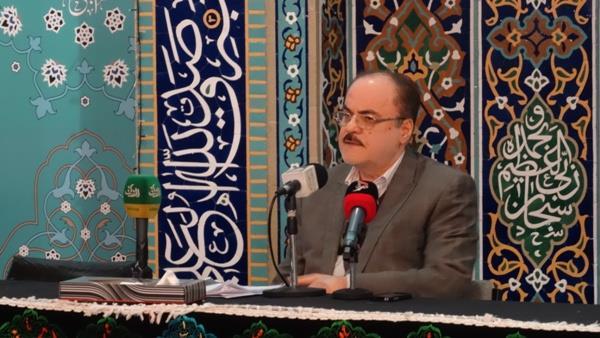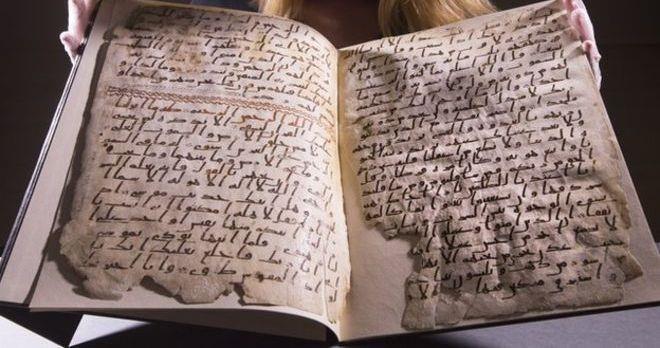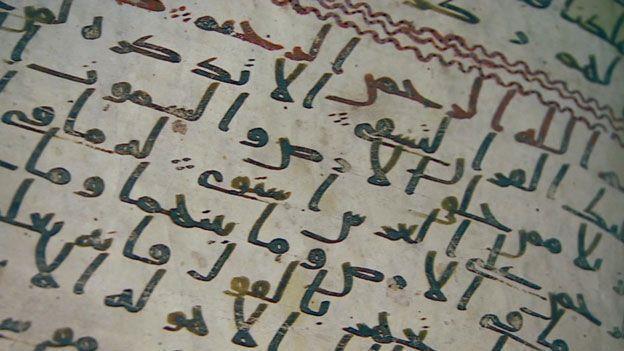Radiocarbon Dating of Recently-Found Quran Manuscript Reliable

Ali Ramadan al-Awsi told IQNA that doubts raised about the date attributed to the copy are not based on scientific evidence.
Last month, fragments of a Quran copy were found in the University of Birmingham in Britain.
According to a University of Oxford radiocarbon analysis, the parchment on which the text is written dates back to the period between 568CE and 645CE, close to the time of Prophet Mohammad (PBUH).
Al-Awsi said the date attributed to the copy doesn’t seem to be exaggerated.

As for the existence of dots in the manuscript, he said it is true that dots were used when the first copies of the Quran were written.
Dots and symbols were introduced (to Quran calligraphy) by Abul Aswad Duali under the guidance of Imam Ali (AS), he said.
However, in the past that texts were written on parchments and then removed for new writing, Al-Awsi stressed, noting that it could be the case with the Birmingham Quran Manuscript as well.
Elsewhere in his remarks, the Iraqi-born scholar said the discovery of the copy is yet another proof against claims by some biased orientalists about the revelation.
He underlined that the parchment proves that the Quran was compiled in the time of the Holy Prophet (PBUH).

Earlier, another London-based Islamic scholar and researcher also described the find as significant.
“I think this is extremely important discovery for two reasons: First of all, this Quran is written in Hijazi script as against all other texts that are in Kufic script which shows that initially the Quran was written in Hijazi script but later on Kufic being nicer and better replaced the Hijazi script. Secondly, it shows that the Quran was written and compiled at the time of the Prophet himself and rejects historical accounts of its compilation at the time of the first caliph”, Mohammad Saeed Bahmanpour told Press TV.
Bahmanpour also rejected century some old assertions, especially by some western scholars that the Muslim holy book was compiled years after the Prophet Mohammad (PBUH).
“Usually, it is assumed based on certain narrations that the Quran was not compiled at the time of the Prophet rather at the time of Caliph Abu Bakr or Caliph Osman that of course no one would deny. However, that doesn’t mean that it was not complied at the time of the Prophet. They were just additional compilations ordered by Abu Bakr for example. It doesn’t of course contradict or has any conflict to assume that the Quran was compiled at the time of the Prophet by Abdullah ibn Masood and Ali ibn abi Talib (AS)”.
He added that the discovery of this text would put an end to all those authorizations or hypotheses which are based on very weak evidence.
“I think this is yet another proof that the Quran has reached us intact the way it was preached at the time of the Prophet (PBUH) and the way it was complied. Probably, this is the oldest text of the Quran found till now and it is exactly the same as the Quran that we read today”, Bahmanpour went on to say.
http://iqna.ir/fa/News/3339672



